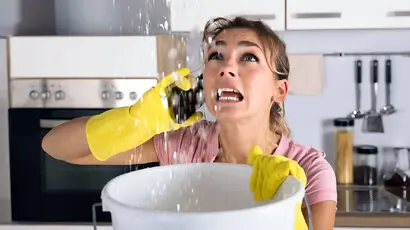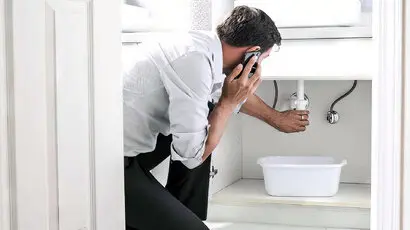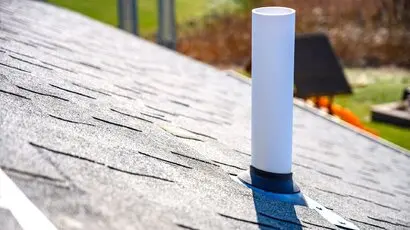What Constitutes A Plumbing Emergency?
Are you unsure when a plumbing problem turns into an emergency? Our blog explores the signs and solutions for plumbing emergencies. Get expert advice on dealing with unexpected plumbing issues.
Recognising a plumbing emergency is crucial for both homeowners and businesses. A plumbing emergency involves serious problems that threaten health, safety, or cause significant property damage. These situations need immediate action from a skilled emergency plumber to address the issue effectively.
This detailed guide explores common household plumbing emergencies, how to spot them, and when’s the right time to call in the experts. Find out what to expect, covering everything from sewer backup issues to hot water system breakdowns.
Read on to learn the key signs of a plumbing emergency and how to get the urgent plumbing help you need from a local emergency plumber.
When you have a plumbing problem, you can either call a local general plumber or an emergency service. Both can help, but key differences exist between regular and emergency plumbers.
General local plumbers usually work during standard business hours, offering services such as installations, repairs, and routine maintenance. While they can address various problems, they might not be available for immediate emergencies, particularly outside regular hours. They tend to schedule appointments beforehand, focusing on tasks like installing fixtures or clearing basic clogs during the workweek.
Emergency plumbers specialise in urgent situations needing quick attention beyond the usual 9–5 schedule. They handle critical issues like major leaks, burst pipes, sewage backups, gas leaks, and complete system failures.
Emergency plumbing companies offer 24/7 availability to take your call and can dispatch licensed plumbers promptly at all hours. Their technicians are trained and certified to safely diagnose and stabilise emergency plumbing issues using specialised techniques and equipment. They can contain water damage, stop gas or sewage overflow, and restore essential functions. Emergency plumbers are crucial when disasters strike and general plumbers are unavailable.
While general plumbers handle routine needs, emergency plumbers are essential for urgent problems that can’t wait. Choosing the right one based on your issue’s urgency and timing ensures you get the proper solution when needed.
Some situations are clear plumbing emergencies that require immediate attention, not delay until normal hours. Key emergencies include burst pipes, gas leaks, sewer backups, significant leaks, no hot water, drainage problems, and heating system failures. Let’s explore these further:
Burst pipes that are leaking profusely constitute an emergency plumbing issue. Burst pipes can quickly lead to flooding and significant damage throughout a home or business. Flooding and moisture can ruin flooring, warp wood, and promote mould growth. Burst pipes need immediate repair or isolation to contain the situation.

Any suspicion of a gas leak from appliances or gas lines demands immediate action. Natural gas is explosive and toxic when concentrations build up indoors. A small gas leak can rapidly escalate to a deadly explosion hazard if not addressed promptly. Do not hesitate to call emergency plumbers if you suspect a gas leak.

Raw sewage backflowing into your home from blocked external drains or sewer lines is considered an emergency plumbing issue. Overflowing sewage carries pathogens and bacteria that pose a severe health hazard. Sewage backups need urgent clearing and cleanup to restore proper drainage and sanitise affected areas.

Uncontrolled water leaks that cannot be contained in buckets and are rapidly worsening warrant emergency plumbing services. Significant leaks can quickly lead to flooding and destruction of personal property, whether from pipes, hoses, appliances or other sources. Stopping the water source is critical, and a professional emergency plumber may be required if you cannot access shut-off valves.

Having no hot water at all usually signals a major problem with your hot water system that necessitates urgent repair by a qualified emergency plumber. A lack of hot water impacts your ability to shower, wash dishes, and maintain hygiene and sanitation.
Emergency plumbers can diagnose and fix it promptly, whether the issue is a burst tank, broken heating elements, faulty thermostat, or another cause.

Completely blocked drains or toilets overflowing after plunging signal an emergency if you cannot clear them yourself. Whether tree roots infiltrate sewer lines, pipe collapses, or debris overloads, complete clogs left unresolved lead to sewage backups and interior flooding as waste has nowhere to drain. Emergency drainage services can employ augers, hydro-jetting, or camera inspection to identify causes and open up lines.

You do not need to be an expert to identify a household plumbing emergency. Some clear signs signal the need for immediate emergency plumbing services:
Gushing water from broken pipes, ruptured pipe joints, or loose valves likely indicates a plumbing catastrophe. Gushing water denotes serious leakage that will only get worse without intervention. Take cover and call an emergency plumber right away before flooding and water damage take hold.

If you use natural gas appliances, the distinctive rotten eggs smell of gas leaks should prompt an immediate call. Never ignore the smell of natural gas indoors. Natural gas rapidly accumulates in enclosed spaces and poses an explosion risk. Evacuate occupants to fresh outdoor air and call the fire department, followed by emergency gas line repair.
Standing water pooling on floors around sinks, tubs, toilets or other fixtures that do not drain or recede after you plunge is a red flag for a major clog. If drains remain completely congested, flooding will ensue. Call emergency drain cleaning services to prevent overflowing water and sewage backflow.

Turning faucets to hot but getting only cold water usually means something is seriously wrong with your hot water system. A lack of hot water prevents you from bathing, washing up, cooking, and more. Emergency plumbers can diagnose issues like failed heating elements, leaks, or broken valves and restore hot water.
Strange gurgling sounds emanating from drains, loud rumbling inside pipes, or thumping sounds from your water lines can signal blockages, bursts, or leaks. Strange noises often mean trouble is brewing. Call emergency plumbing professionals who can pinpoint and address the cause before major destruction results.
Excess moisture collecting on walls, ceilings or floors may indicate concealed water leaks from pipes inside them. Watch for pooling condensation that reappears quickly after wiping it away. Hidden leaks can compromise structures and foster mould without visible signs of water on surfaces. Thermal imaging can help emergency plumbers find the source of the leak.

Knowing when to call an emergency plumber versus a general plumber can be tricky. Plumbing issues run the gamut from minor problems you can monitor to catastrophic emergencies requiring urgent response. As a guideline, size up the issue’s scale and urgency.
Start by assessing how rapidly the problem is worsening. Small leaks that are slowly dripping can generally wait for regular business hours. However, if the leak quickly escalates into a gusher, call for emergency service. Likewise, urgent assistance is needed if you have a complete clog that causes sewage to back up quickly and overflow. The faster a problem is accelerating, the sooner you need help.

Potential health and safety hazards should also be evaluated. Gas leaks, sewage overflows, and burst pipes causing major flooding require emergency response. Similarly, it becomes an emergency if your plumbing issue leaves you without hot water or heat in freezing conditions. The higher the risks to your safety, property, or health, the more urgent the situation. When in doubt, do not hesitate to call an emergency plumber right away. They can better assess the severity and determine if immediate intervention is warranted.
Ultimately, if you cannot contain the issue yourself, it is intensifying rapidly, or there are significant risks if left unattended, call for emergency plumbing assistance. For less acute problems, contacting a plumber during regular hours should suffice. Trust your instincts, and when in doubt, opt for caution by calling in the professionals sooner rather than later.
Contacting a reputable emergency plumber ensures you receive rapid, professional assistance when faced with a plumbing emergency. Top emergency plumbing companies strive to provide swift, compassionate, and competent service during urgent situations.
You can expect 24/7 availability to take your call anytime or night. Polite dispatchers will assess the problem and promptly dispatch licensed technicians based on the severity of your plumbing emergency. The plumber will arrive within a reasonable quoted timeframe and communicate each step as they diagnose issues and enact repairs. Services like containing water damage, stopping ongoing leaks, safely shutting off gas, and implementing temporary fixes to stabilise the situation are standard.

Reliable emergency plumbers also offer transparency about service costs and options like payment plans if the unexpected expense is a financial strain. They schedule follow-up visits as needed during regular hours to complete permanent repairs. The technician’s top priority is quickly restoring safety and vital functions like hot water and working toilets in your home or business. Calling a reputable emergency plumber when issues arise assures you that skilled urgent assistance is coming.
Being proactive is critical to avoiding common plumbing emergencies. Homeowners can take several maintenance steps to minimise the likelihood of emergency plumbing issues. Partnering with a professional local plumber for annual inspections of your plumbing systems provides expert assessment to spot potential problems early. A licensed plumber can check for subtle signs of a leak, corrosion, or blocked drains and address minor issues before they escalate into emergencies requiring emergency call-outs.
It is also wise for homeowners to regularly inspect plumbing systems themselves for drips, cracks, or other visible damage. Keeping drains clear of hair and debris prevents clogging, which could lead to sewage backups or a burst pipe from the excess pressure.
Having a plumbing service flush your water heater annually removes sediment that can cause failure. You should also replace old pipes and fittings before they corrode and fail.
Following proper usage guidelines and avoiding putting fat down drains minimises the chances of obstructions. Being proactive allows you to address small plumbing jobs before they become major emergencies, saving money and preventing the stress of an urgent plumbing situation.
When a plumbing emergency strikes, you can mitigate damage while waiting for the plumber to arrive. If pipes have burst and are leaking profusely, turn off the main water supply valve to isolate the issue until the professional plumber conducts repairs. If you suspect a gas leak, open windows to ventilate the area with fresh air.
Use towels to soak up pooling water from leaks or burst pipes to reduce flooding’s spread. Plug sink and tub drains to slow water backing up from a blocked drain. Turn off both water and gas appliances or electronics at risk of water damage from leaks. Clear movable belongings out of flooding danger zones. Taking these steps helps minimise the chaos.

There are ways to prevent a minor plumbing issue from escalating into an expensive nightmare. Catching leaks early before seeping into walls and spreading allows for easier repairs. Isolating areas of flooding quickly prevents additional water damage.
Extracting water from sodden carpets rapidly after flooding reduces the chances of permanent warping or mould issues. You can also use dehumidifiers, air movers, and fans to speed up the drying time in affected areas. Consult professional remediation experts for proper cleanup in severe water or sewage damage. Taking quick action helps reduce the scope and cost of the damage substantially. An ounce of prevention here is truly worth a pound of cure.
When an emergency plumbing catastrophe strikes, choosing the right plumbing company for urgent repairs is critical. Verify the reliable emergency plumber you contact holds current local licenses and insurance. Check online reviews and ratings to select a reputable provider known for quality work and professionalism. Ask about their average emergency response times to ensure sufficiently prompt service.
You can also get quotes in writing before work begins, so there are no surprises on cost. Look for plumbers whose technicians are certified and specially trained in emergency plumbing work. Taking these steps helps ensure you get competent assistance as soon as possible when it matters most.
Any uncontrolled water or gas leak, sewage overflow, or system failure that poses risks to health and safety should be considered a plumbing emergency. Other red flags include burst pipes, overflowing toilets, lack of hot water, and strange smells indicating a potential gas leak.
Ensuring you are prepared for emergency plumbing problems means you can keep your home or business safe. Always take precautions and remove any hazards before the plumber arrives.
If you encounter these issues, contact WP Plumbing, your local Melbourne emergency plumber. Our licensed technicians are available 24/7 to provide urgent assistance for plumbing catastrophes, large and small. We offer rapid response times and transparent quotes, so you know expert help is on the way.
Don’t hesitate to call WP Plumbing for reliable emergency plumbing solutions. Contact us today for priority service for your plumbing emergency.
Small leaks may not require emergency plumbing services, but look for signs that the leak is growing larger or spreading. Rapid dripping, new water stains, or pooling water indicate that it’s time to call an emergency plumber to prevent significant damage.
A blocked toilet that overflows is considered a plumbing emergency. The wastewater can damage floors and release harmful bacteria. Try plunging first, but call an emergency plumber if that doesn’t resolve the issue quickly before the overflow worsens.
Suppose you detect a rotten egg odour and suspect a gas leak that constitutes a significant plumbing emergency. Follow safety precautions like evacuating the area and calling the gas company or emergency plumber to inspect for leaks immediately. Don’t ignore a potential gas smell.
It depends on the severity, but any rapidly spreading water leak requires urgent attention. If a leak is contained to one spot and dripping slowly, you may be able to wait for a routine plumber. But call for emergency help if the water leak worsens quickly before major flooding results.
Situations like gushing water leaks, sewage backups, no hot water, or suspected gas leaks require after-hours emergency plumbing services. Minor issues like a slow drip or clogged drain may require regular business hours to contact a plumber. Use your best judgment.
A well-thought-out emergency plumbing plan can save your home from costly damage. Learn why it’s vital and get prepared with expert advice.
Calling an emergency plumber in Melbourne can be quite a hassle. Here are some tips on when to call one and how they can help you out of a jam.
What is the purpose of a plumbing vent? A plumbing vent ensures the smooth running of the plumbing system. Keep reading to discover why plumbing vents are so important.


